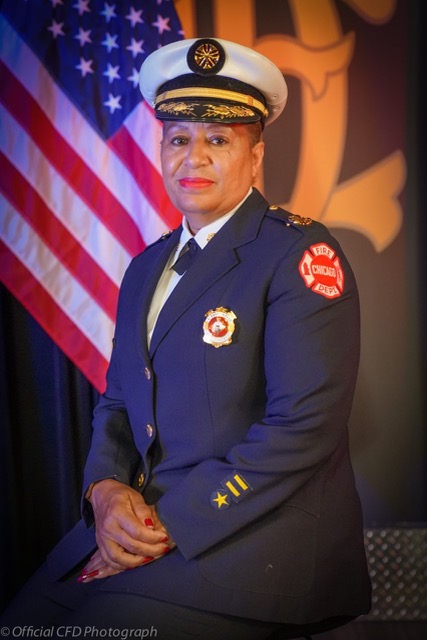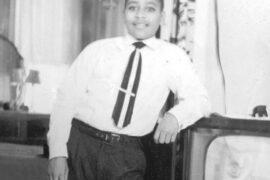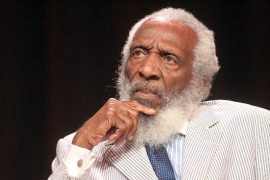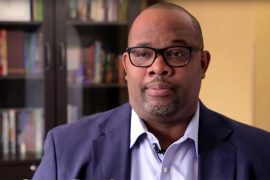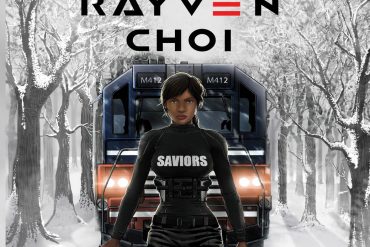Commissioner Annette Nance-Holt is the first woman and woman of color to lead the Chicago Fire Department in its 162-year history.
A native of Chicago, Commissioner Nance-Holt was raised in the Maple Park community of the Southside and attended both parochial and public schools. She holds a Master of Science degree in Public Administration/Fire & Emergency Management from Anna Maria College and a Bachelor of Arts degree from Chicago State University.
Nance-Holt has dutifully served the Chicago Fire Department for over 30 years and served as the Acting Fire Commissioner after Commissioner Richard Ford II retired following his lifetime of dedicated service. She has also served the Chicago Fire Department in the following positions: Deputy District Chief, Battalion Chief-EMT, Captain-EMT, Lieutenant-EMT, and as a Firefighter.
In her personal life, Ms. Nance-Holt’s passion has become the passing of common-sense gun legislation. In May of 2007, tragedy hit when her 16-year-old son, Blair Holt, was fatally shot on his way home from school. Since Blair’s death, Ms. Nance-Holt has supported parents who have lost a child to gun violence with the creation of the non-profit organization, Purpose Over Pain – an advocacy organization that supports parents who also lost children to gun violence, provides safe and positive outlets for children and youth, and advocates and promotes safer communities in Chicago, Illinois. She also is the founder of the Blair Holt Scholarship Foundation.
Commissioner Nance-Holt resides in Chicago with her family and is a member of St. Sabina Church and Delta Sigma Theta Sorority, Inc., the International Association of Black Professional Firefighters, and the African American Firefighters & Paramedics League, where she once served as President and Vice-President.
N’DIGO is happy to share this interview with Commissioner Annette Nance-Holt with its readers.
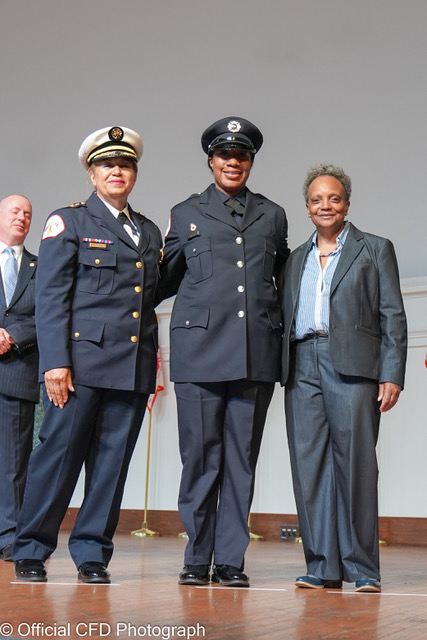
N’DIGO: How did you become interested in being a firefighter?
Commissioner Annette Nance-Holt: I saw there was going to be an exam and went to take it with my then boyfriend and his friends and was thinking, this is cool, and I can definitely do it!! It came at a time when I wanted to do something different in my life, and I knew I always knew that I wanted to help people.
What obstacles did you meet in the department as a woman?
To be honest, any job I had prior to joining the Chicago Fire Department presented different obstacles by being a woman of color. I look at obstacles as opportunities to create meaningful change to show people who they have in their presence and the value I bring to the team. Going to a firehouse that had never had a Black woman firefighter was different for me.
However, I have always known I could do whatever I put my mind to, and it didn’t matter what people thought. So I always held my belief I deserved to be here just like anyone else.
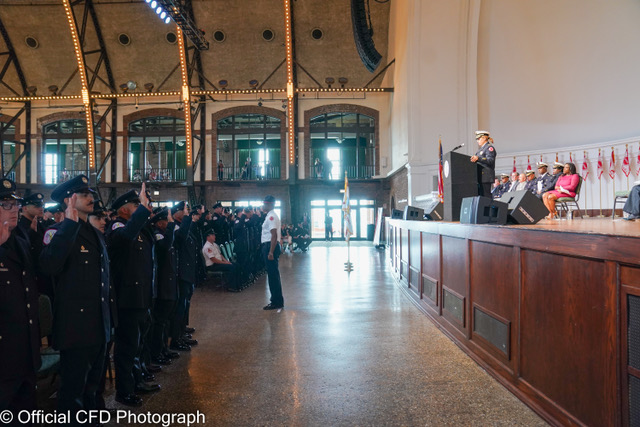
You are now recruiting for the fire dept; why should someone want to become a firefighter?
It is a great career that provides the opportunity to help people out on what could be the worst day of their lives. You are a role model in your community and inspire others to follow the same path.
The benefits package is very attractive. No experience is needed as we will train you to be a Firefighter/EMT and pay you a full salary while in school. Sign up, and you can determine if you want the job or not.
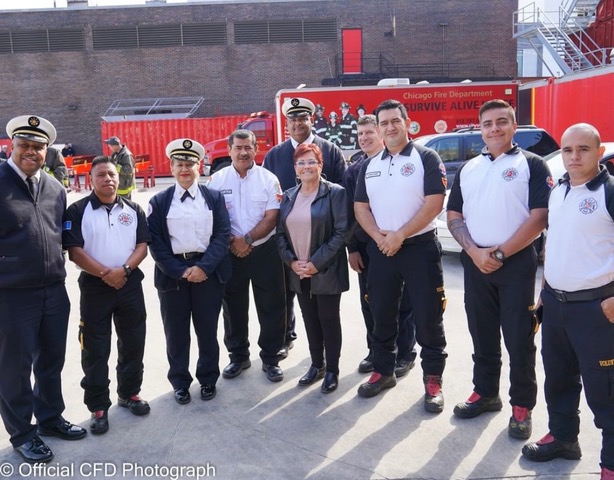
How do you relate to the agency as a woman with a majority male staff?
Actually, growing up with two brothers and being competitive helped me. I was a tomboy growing up, and many of my friends were boys. I really never thought about the differences and was never taught to. When we go into fires or on calls, we are one team working together to get the job done and minimize the harm to our citizens and visitors.
I was determined to not just get on the job but position myself for promotion by constantly studying and investing in myself to improve my skills. For me, working with men is no different than working with women.
Have you encountered racism within the department?
When I walked in the firehouse door in 1990, I felt the heaviness. It was not welcoming at all. However, the Captain on the truck in my firehouse was Monnegan. He made sure that I learned the engine and his truck, which I was certified to drive. He would always drill me and ask me questions to make sure I learned the job. In addition, he asked his wife what to do since a black female firefighter had never been assigned to this house. We are all still friends today, and I am forever grateful to him for just making sure that I got the same opportunities as the men. It paid off big!
Being who I am – I was determined to be on this job, and no one was going to make me feel that I didn’t belong or couldn’t do this job!
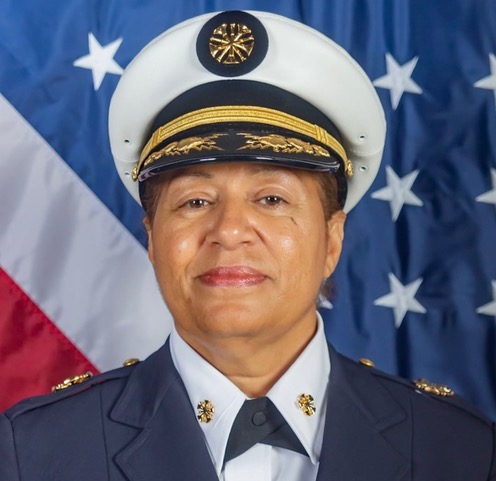
Describe your leadership style.
I believe it is more transformational because of my beginning in the fire department of trying to change a culture that didn’t want to accept differences. Cultural change is at the heart of my mission. Understanding what this department needs has driven me to work in various roles to the effect that change. Whether it was the President of the African American Firefighters & Paramedics League, the federal monitor for the Lewis class, being an instructor at the fire academy, or just mentoring and volunteering my time at the Carl Homes Executive Development Institute to help create future leaders in the fire service is what my role has been. I worked to lead by example to help the department to evolve and grow.
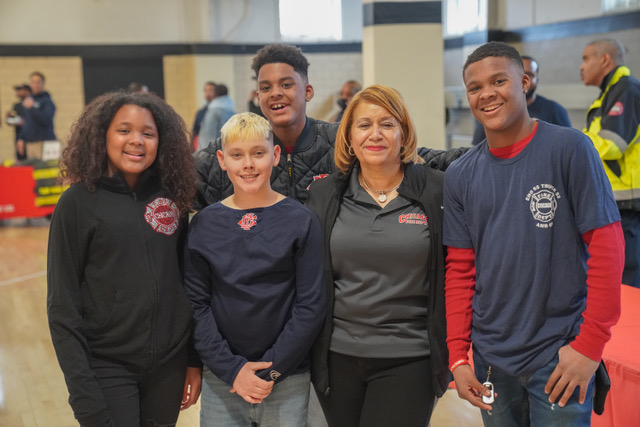
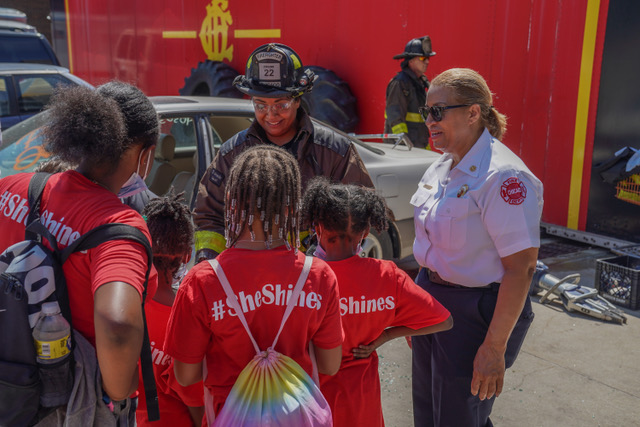
What is your best moment as a firefighter?
There are many, but probably, sitting on a fire engine or truck and seeing the faces of people in my community – those little girls that look like me and point and smile – something I never saw as a child—also standing in front of a fire building and assuming command and people just looking amazed.
As a woman, how did you climb the ranks within the organization?
I worked to be promoted up the ranks by studying and taking classes to advance, mentoring others, and going to other fire departments; participating in their oral component promotional process helped me work toward the higher ranks. I was investing in myself to further my career. I had some great mentors like Nicholas Russell. May he RIP.
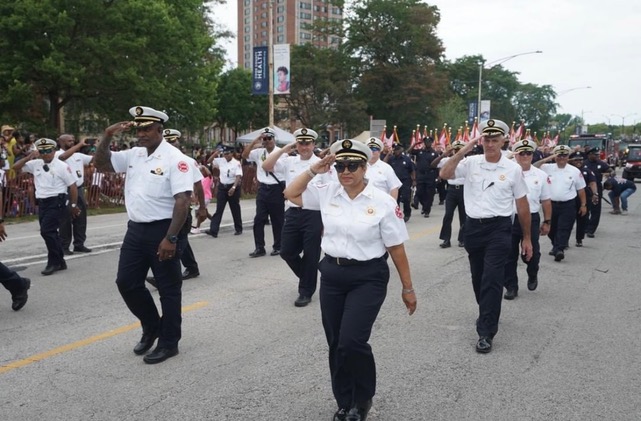
What is your biggest challenge?
Change is hard for so many people, but change is good. We are creating the diversity that we are so desperately seeking. Hey, I am the first in 162 years. I have fought for diversity since I walked in the door, and I hope and pray that our community understands how great of a profession this is and signs up for this exam. The only way to effect change is to take action.
Who is the perfect firefighter? What are you looking for?
I don’t think perfect is the word. We are looking for people willing to do something they may not have considered a career. Someone who has heart and wants to help people, is a role model, and cares about people. Hey, look at me. I came from Corporate America and took this job. I never planned for this. I was athletic, didn’t give up, and was fiercely competitive.
I have a great department with wonderful firefighters and paramedics, and I am honored to lead these men and women daily. The Chicago Fire Department is the best in the world, and I can say that.


